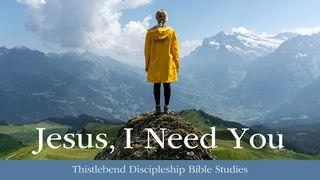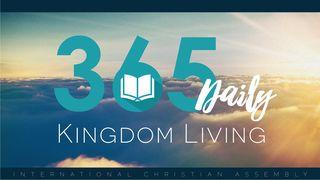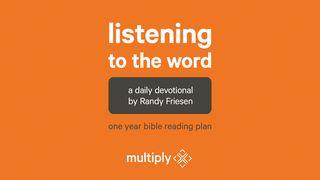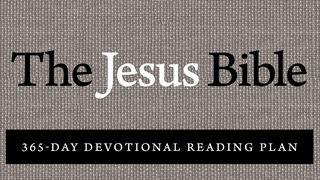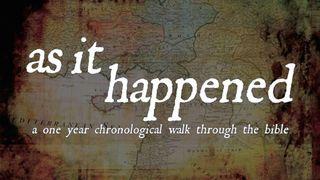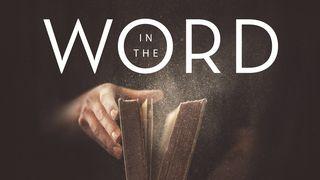For The Love Of GodSample

FOR NARRATIVE SIMPLICITY AND POWER, the book of Esther readily captures the imagination. Though by now we are three chapters into it, we can pick up something of both its flavor and its message by reflecting on selected elements of Esther 4.
(1) The book makes its profound theological points by the shape of its restrained narrative. Commentators never fail to observe that not once does the book explicitly mention God. Nevertheless, it says a great deal about God and his providence, about his protection of his covenant people (even when they are far from the land, learning to survive during the exile and throughout the Diaspora), and about their faith in him, even when they are horribly threatened.
(2) The book thus gradually leads us to reflect on the strange circumstances that bring Esther to succeed Vashti as queen, as the consort of the Emperor Xerxes. If the point is overlooked by the careless reader, the chapter before us makes it pretty obvious to all but the most obtuse. “And who knows but that you have come to royal position for such a time as this?” (4:14), Mordecai asks Esther by the hand of Hathach. Mordecai is not appealing to impersonal fate; he is a devout and pious Jew. But the form of his utterance emphasizes God’s sovereign providence even while implicitly acknowledging that providence is hard to read. God’s people must act responsibly, wisely, strategically in light of the circumstances that play out around them, knowing that God is in control.
(3) Even while Mordecai mourns and wails deeply when he discovers Haman’s plot (Esther 4:1-3), he neither descends into fatalism nor loses his faith. Having had time to mull over the wretched threat to his people, he reaches the conclusion (as he puts it to Esther) that, “For if you remain silent at this time, relief and deliverance for the Jews will arise from another place, but you and your father’s family will perish” (Esther 4:14). Granted that God is faithful to his covenant promises, Mordecai cannot conceive that he would permit the people of God to be destroyed.
(4) True to her upbringing by Mordecai, Esther simultaneously expresses confidence in the living God and avoids the presumption that God’s purposes for her life are easy to infer. She knows that God is there and that he hears and answers importunate prayer. “Go, gather together all the Jews who are in Susa [the capital city], and fast for me. Do not eat or drink for three days, night or day. I and my maids will fast as you do…. And if I perish, I perish” (Esther 4:16). While she resolves to do what is right, she acknowledges that she cannot see her own future and commits herself to the grace of God.
(1) The book makes its profound theological points by the shape of its restrained narrative. Commentators never fail to observe that not once does the book explicitly mention God. Nevertheless, it says a great deal about God and his providence, about his protection of his covenant people (even when they are far from the land, learning to survive during the exile and throughout the Diaspora), and about their faith in him, even when they are horribly threatened.
(2) The book thus gradually leads us to reflect on the strange circumstances that bring Esther to succeed Vashti as queen, as the consort of the Emperor Xerxes. If the point is overlooked by the careless reader, the chapter before us makes it pretty obvious to all but the most obtuse. “And who knows but that you have come to royal position for such a time as this?” (4:14), Mordecai asks Esther by the hand of Hathach. Mordecai is not appealing to impersonal fate; he is a devout and pious Jew. But the form of his utterance emphasizes God’s sovereign providence even while implicitly acknowledging that providence is hard to read. God’s people must act responsibly, wisely, strategically in light of the circumstances that play out around them, knowing that God is in control.
(3) Even while Mordecai mourns and wails deeply when he discovers Haman’s plot (Esther 4:1-3), he neither descends into fatalism nor loses his faith. Having had time to mull over the wretched threat to his people, he reaches the conclusion (as he puts it to Esther) that, “For if you remain silent at this time, relief and deliverance for the Jews will arise from another place, but you and your father’s family will perish” (Esther 4:14). Granted that God is faithful to his covenant promises, Mordecai cannot conceive that he would permit the people of God to be destroyed.
(4) True to her upbringing by Mordecai, Esther simultaneously expresses confidence in the living God and avoids the presumption that God’s purposes for her life are easy to infer. She knows that God is there and that he hears and answers importunate prayer. “Go, gather together all the Jews who are in Susa [the capital city], and fast for me. Do not eat or drink for three days, night or day. I and my maids will fast as you do…. And if I perish, I perish” (Esther 4:16). While she resolves to do what is right, she acknowledges that she cannot see her own future and commits herself to the grace of God.
Scripture
About this Plan

A daily devotional for discovering the riches of God's word: For the Love of God is a daily devotional designed to walk a person through the Bible in a year while assisting the reader in discovering the riches of God's Word. Our hope is that this daily devotional will deepen your understanding and appreciation of God's Word, for the love of God.
More
We would like to thank The Gospel Coalition for providing this plan. For more information, please visit: thegospelcoalition.org

